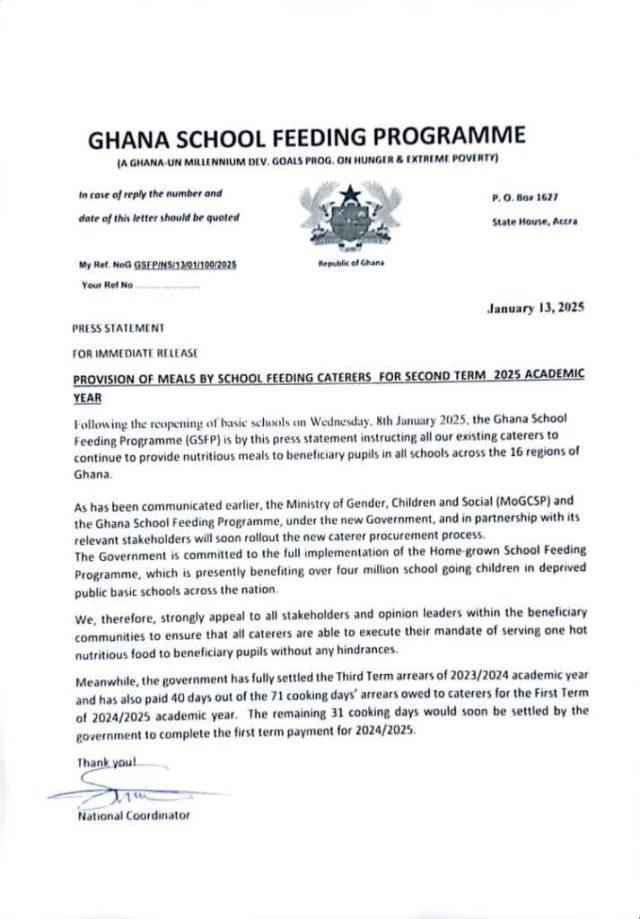The Ghana School Feeding Programme (GSFP) has officially resumed its operations for the 2025 academic year, reaffirming its commitment to providing one hot, nutritious meal each day to pupils in public basic schools across the country.
This initiative, which aims to support over four million schoolchildren, particularly those in underprivileged communities, continues to play a critical role in improving education and addressing hunger in Ghana.
In a statement released on January 13, 2025, the GSFP directed all current caterers to resume their meal services following the reopening of schools on January 8. The programme is vital to many families, offering children a nourishing meal, which, in turn, encourages school attendance and performance.
Looking ahead, the Ministry of Gender, Children, and Social Protection (MoGCSP), in collaboration with the GSFP, has revealed plans to introduce a new caterer procurement process under the current administration. This initiative is expected to bring improvements in the programme’s efficiency and sustainability, as the government strives to address challenges and streamline operations.
The programme’s national coordinator shared positive news about financial matters as well, confirming that the government has made notable progress in clearing outstanding arrears owed to caterers. Payments for the entire third term of the 2023/2024 academic year have been fully settled, and 40 out of the 71 cooking days owed for the first term of the 2024/2025 academic year have also been paid. The remaining 31 days are expected to be cleared soon, addressing one of the key concerns that had previously caused unrest among service providers.
However, the GSFP stressed the importance of collaboration from local stakeholders, including community leaders, to ensure that caterers can continue their work smoothly. As the programme progresses into the new year, the government is keen to focus on its goal of improving access to healthy meals and expanding the initiative to further regions.
The GSFP has been a cornerstone of the government’s efforts to tackle malnutrition and promote education, but as it looks to the future, it faces the challenge of ensuring that the programme remains sustainable and that the benefits continue to reach the most vulnerable children across the country. The planned improvements and stakeholder engagement are seen as key to maintaining the programme’s success in the years ahead.
Send your news stories to newsghana101@gmail.com
Follow News Ghana on Google News
















